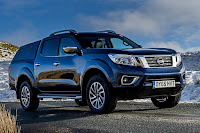Electric Delta E-4 Coupé
Developments in electric vehicle technologies continue apace, and the new Delta E-4 Coupé demonstrates that increased range and performance need not be mutually exclusive.
Indeed, while the E-4 will manage 200 miles (321 kilometres) on a single charge, it’s also capable of doing the 0-60 mph (96 km/h) sprint in less than five seconds.
In part, that’s down to light weight and careful attention to the aerodynamics. The body shell is made from carbon fibre and tips the scales just 85 kg (187 lbs), yet Delta claims it has been engineered to pass strict EU crash tests. To ensure that featherweight chassis is exploited to the full, power comes from direct-drive electric motors which produce over 118 bhp (88 kW / 120 PS) and 600 Nm (442 lb/ft) of torque each.
Simon Dowson, co-founder of Delta Motorsport, said: "We became involved with the design of hybrid and electric vehicles because they share many of the engineering challenges associated with motorsport - light weight parts, aerodynamic efficiency and innovative packaging solutions. We've had to re-think road cars from the beginning, looking at low cost composite structures, system efficiencies and novel occupant packaging."
So far, five examples have been produced for the UK Government’s Technology Strategy Board Ultra Low Carbon Vehicle Demonstrator Program, which has the aim of highlighting British electric vehicle engineering prowess.
There’s no word on whether the E-4 Coupé will enter series production, but it will be participating in the RAC Future Car Challenge. That test follows a 60 mile (96 kilometre) route from Brighton to London and takes place on 5th November 2011.
Indeed, while the E-4 will manage 200 miles (321 kilometres) on a single charge, it’s also capable of doing the 0-60 mph (96 km/h) sprint in less than five seconds.
In part, that’s down to light weight and careful attention to the aerodynamics. The body shell is made from carbon fibre and tips the scales just 85 kg (187 lbs), yet Delta claims it has been engineered to pass strict EU crash tests. To ensure that featherweight chassis is exploited to the full, power comes from direct-drive electric motors which produce over 118 bhp (88 kW / 120 PS) and 600 Nm (442 lb/ft) of torque each.
Simon Dowson, co-founder of Delta Motorsport, said: "We became involved with the design of hybrid and electric vehicles because they share many of the engineering challenges associated with motorsport - light weight parts, aerodynamic efficiency and innovative packaging solutions. We've had to re-think road cars from the beginning, looking at low cost composite structures, system efficiencies and novel occupant packaging."
So far, five examples have been produced for the UK Government’s Technology Strategy Board Ultra Low Carbon Vehicle Demonstrator Program, which has the aim of highlighting British electric vehicle engineering prowess.
There’s no word on whether the E-4 Coupé will enter series production, but it will be participating in the RAC Future Car Challenge. That test follows a 60 mile (96 kilometre) route from Brighton to London and takes place on 5th November 2011.



+Front+Side.jpg)


%2BFront%2BSide.jpg)



Comments
Post a Comment